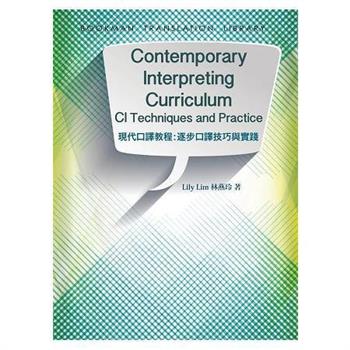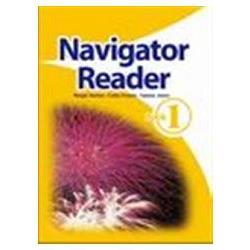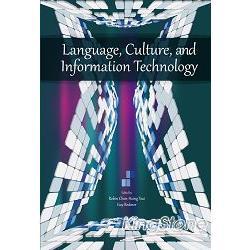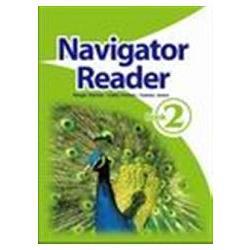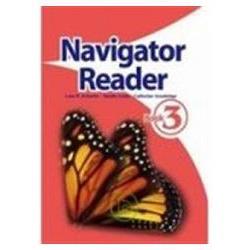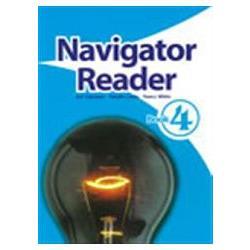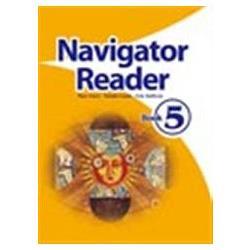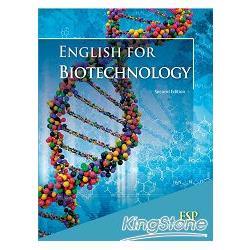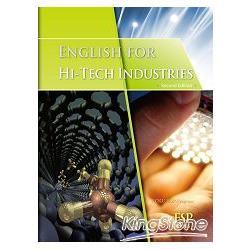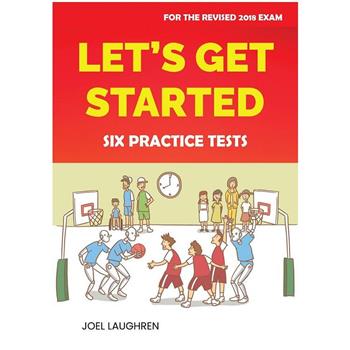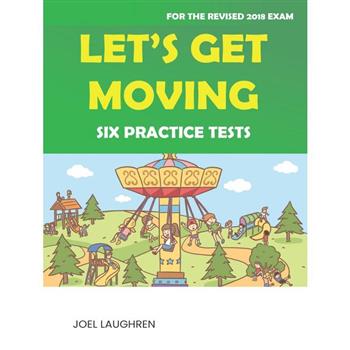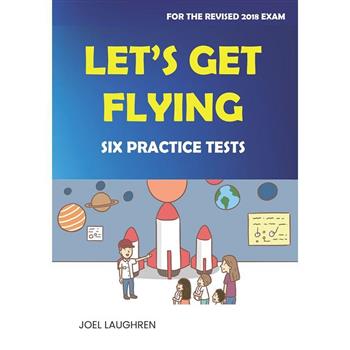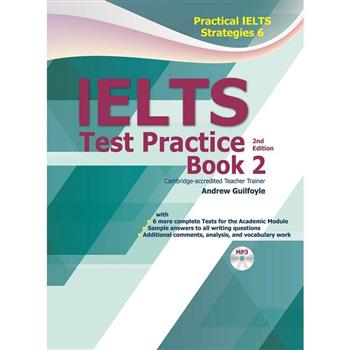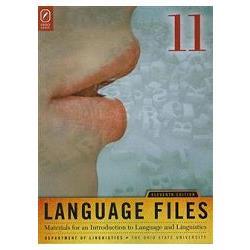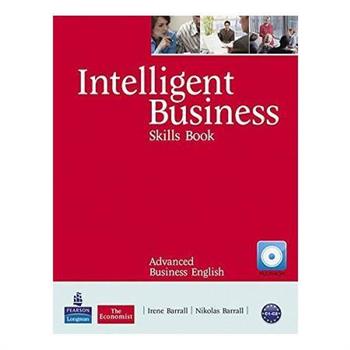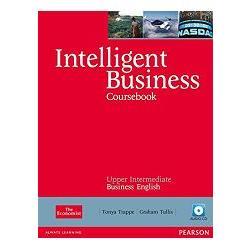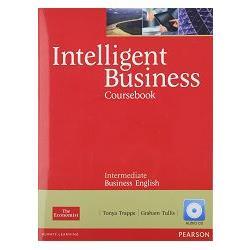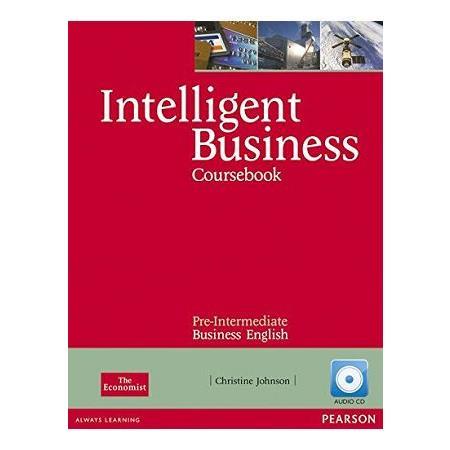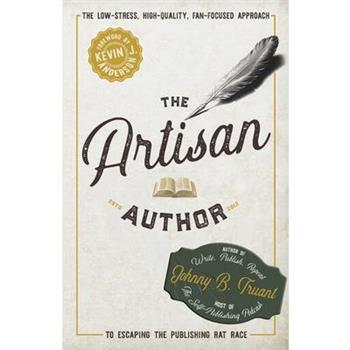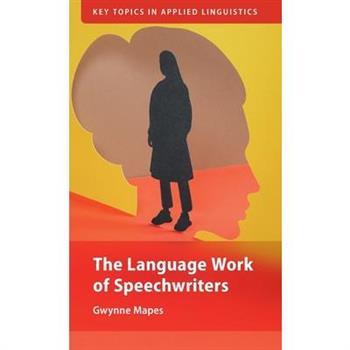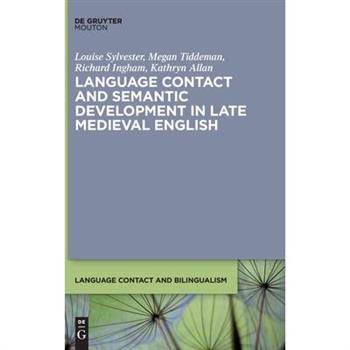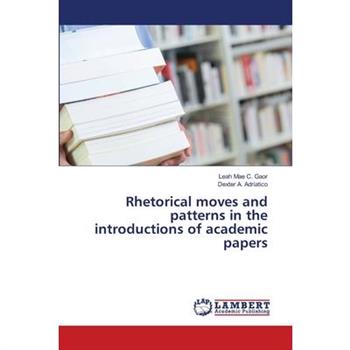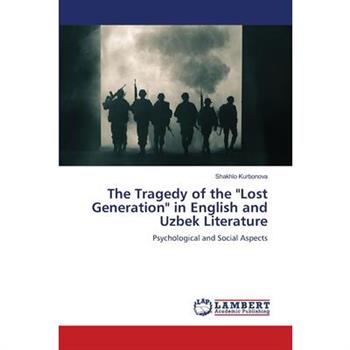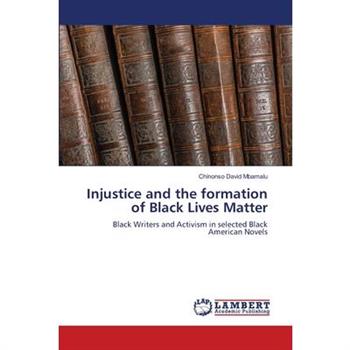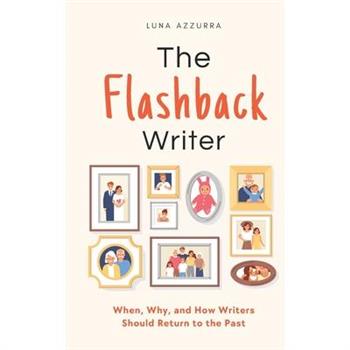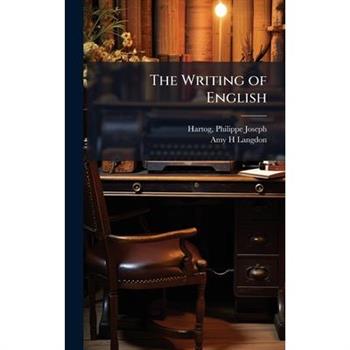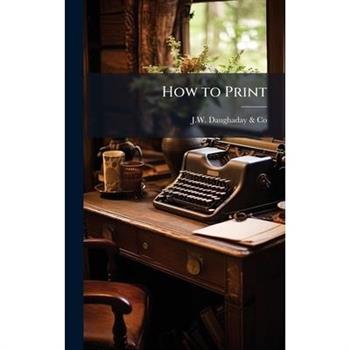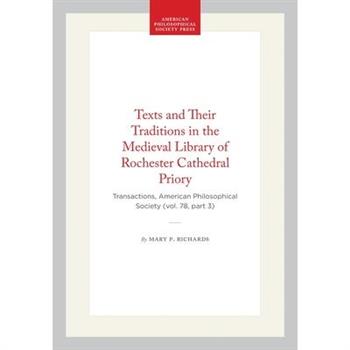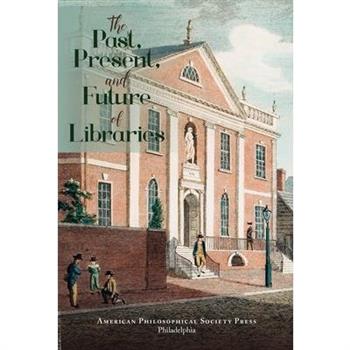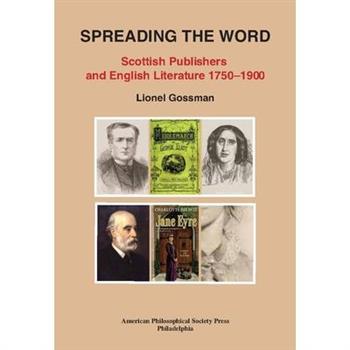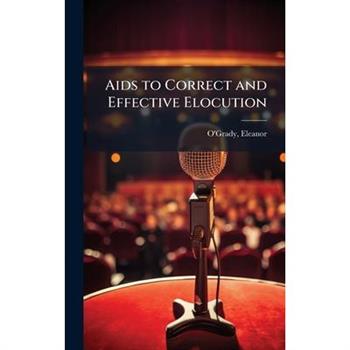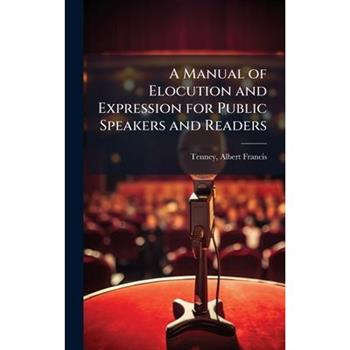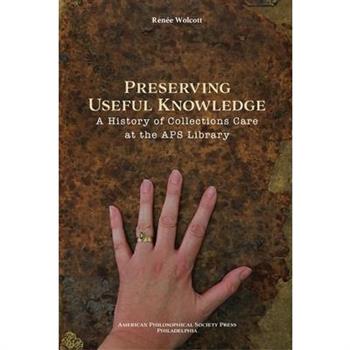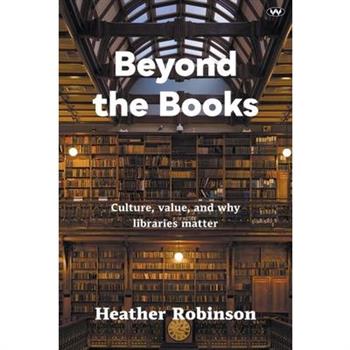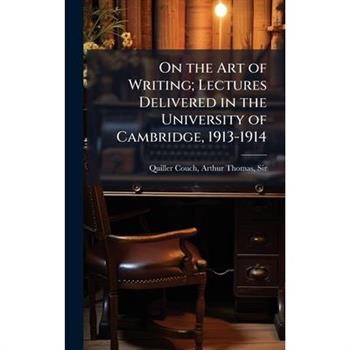The Artisan Author
Less rush. More freedom. A way to love writing again. If modern indie publishing feels like a high-stress race to the bottom, the good news is there's another way.Most authors start writing for the love of it, but in recent years the reality of "writing for a living" has soured. Now, for a lot of us, it no longer looks fun - or creatively fulfilling - at all. You have to obey genres exactly or your books won't sell. If you step outside your lane and try something new, the kinds of readers most authors court will never buy it. And then there's the SPEED of it all: The rules of "Rapid Release" say you have to publish a book every month - at least - or you'll never survive. Forget about taking a vacation. Time off will let the algorithms forget you. Even successful authors often find themselves in "golden handcuffs" selling a lot of books, but only in a series they now have to write forever. And all that to earn around a dollar per book ... sold to readers who are far more loyal to Kindle Unlimited than to you. Where's the joy? Where's the delight that got you into storytelling in the first place? Remember when writing felt like a creative playground instead of a grind? What if, instead of succumbing to that grind, you could find a way to be creative and free ... without having to settle for poverty?In The Artisan Author, industry veteran Johnny B. Truant offers an alternative to Rapid Release: a new way to succeed as an author without sacrificing your freedom, worrying about competition or AI, or fearing you'll lose everything when the winds - or the algorithms - inevitably change.The way of the Artisan Author is the opposite of Rapid Release. Instead of rushing to churn out the same-old same-old, Artisans follow their muse and write whatever they want. Instead of stressing out, Artisans take their time, putting as much care and beauty into their work as they desire. It's a way to build a substantial, sustainable, bulletproof income based on Kevin Kelly's idea of "1000 True Fans" readers who are loyal to you, not any platform. True Fans are all you need to earn as much as you want as an author. They're people with whom you build genuine human connections ... and who therefore love you enough to spend far more than ordinary readers will ever spend.Johnny B. Truant has been a thought leader in the independent publishing community for over a decade, hosting the original Self Publishing Podcast, holding the Smarter Artist Summit conference, and co-authoring the industry bible Write. Publish. Repeat. In The Artisan Author, Johnny presents an art-first, quality-over-quantity alternative to Rapid Release for writers who thought sacrificing creative joy was the only way to succeed. It's not, though. It's wonderful over here on the artfully profitable side of writing. Join us, will you?
The Language Work of Speechwriters
The work of speechwriters is prominent in political discourse, yet the writers themselves remain in the shadows of the powerful, public figures they work for. This book throws the spotlight on these invisible wordsmiths, illuminating not only what they do, but also why it matters. Based on ethnographic research in the US American speechwriting community, it investigates the ways in which speechwriters talk about their professional practices, and also the material procedures which guide the production of their deliverables. Relying on a robust collection of various genres of discursive data, Mapes focuses on the primary rhetorical strategies which characterize speechwriters' discourse, neatly exposing how they are beholden to a linguistic marketplace entrenched in ideological and socioeconomic struggle. Providing fascinating insights into an understudied and relatively misunderstood profession, this book is essential reading for academic researchers and students in applied linguistics, discourse studies, linguistic and cultural anthropology, and sociolinguistics.
The Cambridge Handbook of Multilingual Education
Although multilingual education is still a relatively new field, it has already become a solid and dynamic area of academic investigation growing worldwide. Bringing together a stellar line-up of leading experts, this Handbook covers a wide range of topics crucial for understanding the concept of multilingual education and its implementation. It includes a wide range of overviews and case studies from diverse systems of education from across the globe, to help facilitate effective multilingual instruction relevant in the realities of local and global contexts. All chapters are written in a knowledgeable, yet accessible, style, and the theory is introduced step-by-step, to provide a rich resource for classroom instructors worldwide. It will serve as the principal text for many of the rapidly increasing multilingual programmes, degrees, courses and seminars devoted to multilingual education in tertiary institutions worldwide, as well as a reference text for instructors in primary and secondary education.
Liquid Languages
Which ideas about language are prevalent in cultures that are not framed in Western nationalist and literate traditions? How do people conceptualise language if speakers of the same community are multilingual, have access to different language resources and only partially share ideas about what is right and wrong in language? This book explores the 'liquid' properties of language, highlighting how languages, as discursive-material assemblages, can differ in their degree of fixity. It provides a linguistic anthropological study of the language ideologies in Belize, where ethnic belonging and language practice do not necessarily match and where stable language norms are not always considered a value. Scrutinising ethnographic data and examinations of local performances of English, it shows that languages emerge in relation to belonging, prestige and material culture. Bringing to the fore liquid language cultures, it provides important additions to our understanding of late modern language assemblages in a globalising world.
Introducing Systemic Functional Linguistics
This book provides a comprehensive introduction to Systemic Functional Linguistics (SFL), covering key concepts and contributions to the field, and instructing beginners to apply SFL to different areas.
The Language Work of Speechwriters
The work of speechwriters is prominent in political discourse, yet the writers themselves remain in the shadows of the powerful, public figures they work for. This book throws the spotlight on these invisible wordsmiths, illuminating not only what they do, but also why it matters. Based on ethnographic research in the US American speechwriting community, it investigates the ways in which speechwriters talk about their professional practices, and also the material procedures which guide the production of their deliverables. Relying on a robust collection of various genres of discursive data, Mapes focuses on the primary rhetorical strategies which characterize speechwriters' discourse, neatly exposing how they are beholden to a linguistic marketplace entrenched in ideological and socioeconomic struggle. Providing fascinating insights into an understudied and relatively misunderstood profession, this book is essential reading for academic researchers and students in applied linguistics, discourse studies, linguistic and cultural anthropology, and sociolinguistics.
Language Contact and Semantic Development in Late Medieval English
The multilingual context of medieval Britain has been a focus of historical linguistic scholarship for some time, but Middle English has often been examined in isolation. This book analyzes a large dataset of English vocabulary from the late Middle Ages, a time when the language was gaining new importance, with attention paid to parallel lexical developments in French and Latin. It explores lexical and semantic innovations and losses, and its findings challenge the notion that native and borrowed words were in competition during the period. The book presents a new picture of ongoing bilingualism in the late medieval period and a growth in vocabulary that heralded the beginnings of standardization in English.
Interpreting, Communication and Animal Welfare
Animal welfare work is, arguably, the key locus of interspecific communication and offers a most valuable opportunity to understand what is involved in intersemiotic transmutations. As such, this book introduces the reader to an in-depth understanding of such transmutations by supplementing relevant semiotic and translation theory with data obtained from equine-focused animal welfare outreach events in South Africa. By acknowledging the influence of biosemiotics and ecosemiotics on translation and interpreting studies, this book, in a non-anthropocentric manner, explores the social and cultural construction of living beings and the impact of this construction on their treatment by a particular society. As a result, it sheds light on instances of not only interlingual, intralingual and intersemiotic translation, but also interspecies translation, organisms' agency, and translational aids that allow for translation to take place.
Pluriversal Applied Linguistics
Drawing on extensive research in a marginalized community in Bogot獺, Colombia, and informed by engagements with diverse communities from diverse contexts, this book offers a groundbreaking perspective on pluriversal applied linguistics for language teaching and research. Through critical ethnography and decolonial praxis, it challenges binary views of language, advocating for a more inclusive and relational approach to linguistic education. By embracing epistemologies from the Global South, this book unlocks new possibilities for language learning, teaching, and research, fostering a more equitable and socially just future in education.
Emerging Languages of Indian Sub-Continent
India's linguistic roots are essential to its cultural, historical, and social identity. The country is home to four major language families: Indo-Aryan, Dravidian, Austroasiatic, and Tibeto-Burman, each representing different waves of migration and cultural development over thousands of years. These languages carry the legacy of ancient civilizations, reflected in classical texts, oral traditions, and everyday communication. They influence regional identities, religious practices, and community relationships, forming the foundation of India's pluralistic society. Language also plays a key role in the political and administrative structure, with state boundaries often drawn along linguistic lines. Efforts to preserve endangered languages are crucial, as they hold unique knowledge systems, including ecological and medicinal wisdom. Understanding linguistic roots allows for greater appreciation of India's diversity and fosters unity through mutual respect. This rich tapestry of languages is not only a record of the past but a dynamic and evolving part of the nation's living heritage.About the Author: Prof. Bhumika Manoj Patel is a lecturer of English as well as a Research Scholar. She has an expertise of post-colonial studies, especially the feminism during the partition of India and Pakistan. She is having teaching experience of more than ten years to the college students. About the Editor: Dr. Shweta Gohel is a Dean of Arts and Humanities at a University in Gujarat. Currently, she is guiding Ph.D. students. Prof. Bhumika Patel is pursuing Ph.D. under her guidance. She has an expertise in Language and Literary studies.
The Peace Script
Exposes how appeals to civility, harmony, and nonaggression can unwittingly underpin exclusionary assumptions about race, gender, and classOffering an innovative critique of peace rhetoric throughout US history, The Peace Script: Framing Violence in US Anti-War Dissent reexamines the language of dissent with lessons for our era defined by digital activism and fierce political debates. Dominic J. Manthey explores the peace arguments of various movements, including the Copperhead Movement during the Civil War, the Anti-Imperialist League's stance against US colonialism, Henry Ford's Peace Ship expedition during World War I, the Mothers' Movement during World War II, and the Vietnam Veterans against the War. Each chapter reveals how these movements, while advocating for peace, often upheld or encouraged racial, gender, and class inequalities.Manthey navigates the complex terrain of grassroots activism by blending rhetorical criticism and historical insight to tell readers about the "peace script" that has echoed across America's many wars. Through archival materials and case studies, The Peace Script reveals how anti-war movements craft compelling narratives that dramatize society through heroes, antagonists, and transformative ideals.Redefining the struggle for peace as not only a fight against warfare but also a battle over space, identity, and the right to live with dignity, The Peace Script is essential for scholars of history, rhetoric, and social justice. Manthey provides a crucial perspective on the intersection of race, memory and power, offering urgent insights into how these legacies continue to shape society today.
The Peace Script
Manthey's analysis of protest rhetoric--ranging from speeches to newsletters to documentaries--illustrates how the study of grassroots activism is key to understanding how U.S. warfare is tied to debates about culture and national identity.
Bengali Poetry at the Turning Point
La Llingua Asturiana / The Asturian Language
Esti volume xurde de les contribuciones presentaes nel II Congresu Internacional de la Llingua Asturiana, celebr獺u los d穩es 22 y 23 de mayu de 2024 na Universid獺 Aut籀noma de Madrid. A trav矇s de prespectives diverses qu'abracen l'educaci籀n, la lling羹穩stica hist籀rica, la morfosintaxis, la fonolox穩a, el l矇xicu, la sociolling羹穩stica y la lliteratura, el volume esplora los tres temes centrales que marcaron el congresu: la singularid獺 de la llingua asturiana, la so fonda conex籀n cola identid獺 asturiana y la necesid獺 urxente de la so oficialid獺 pa garantizar la so conservaci籀n y revitalizaci籀n. Ante la posibilid獺 de que l'esperada oficialid獺 de la llingua asturiana tea m獺s cercana de lo previstu, esti volume pres矇ntase como un homenaxe a toles persones que contribuyeron a esti llende y que, ensin dulda, ver獺n pronto reconocida la llingua asturiana como llingua oficial.This volume arises from the contributions presented at the 2nd International Conference on the Asturian Language, held on May 22-23, 2024, at the Universidad Aut籀noma de Madrid. Through diverse perspectives encompassing education, historical linguistics, morphosyntax, phonology, lexis, sociolinguistics, and literature, the volume explores the three central themes that framed the conference: the distinctiveness of the Asturian language, its profound connection to Asturian identity, and the imperative of its recognition as an official language to ensure its preservation and revitalization. In light of the possibility that the long-awaited official status of the Asturian language may be closer than anticipated, this volume stands as a tribute to all those who have contributed to this milestone and will undoubtedly soon witness the long-anticipated recognition of Asturian as an official language.
The Animal Who Writes
Writing begins with unconscious feelings of something that insistently demands to be responded to, acted upon, or elaborated into a new entity. Writers make things that matter--treaties, new species, software, and letters to the editor--as they interact with other humans of all kinds. As they write, they also continually remake themselves. In The Animal Who Writes, Marilyn M. Cooper considers writing as a social practice and as an embodied behavior that is particularly important to human animals. Cooper argues that writing is an act of composing enmeshed in nature-cultures and is homologous with technology as a mode of making.
Injustice and the formation of Black Lives Matter
The Flashback Writer
Do your characters keep slipping into the past, even when the plot's begging them to stay in the present? Are you second-guessing every flashback, unsure if it's adding depth-or just dragging everything down? Yeah. Flashbacks are tricky. And the writing advice out there? Either too vague or too rigid to actually help.The Flashback Writer is your straight-talking guide to one of fiction's most misused tools. No jargon. No literary gatekeeping. Just clear answers to questions like: Should this scene be a flashback? How do I write it without destroying the pacing? Why does this backstory feel important but read like a filler episode?You'll learn how to spot the right moments to dive into the past-and how to come back stronger. Whether you're writing literary fiction, genre-bending fantasy, or a character-driven thriller, this book will help you use flashbacks with precision, power, and purpose.Because your story deserves more than a clunky info-dump and a "ten years earlier" title card.
Glossary of Northamptonshire Words and Phrases; With Examples of Their Colloquial Use, and Illus. From Various Authors
This meticulously compiled glossary, "Glossary of Northamptonshire Words and Phrases," offers a fascinating glimpse into the unique vernacular of Northamptonshire, England. Authored by Anne Elizabeth Baker, Volume 1 provides a comprehensive collection of local words and phrases, enriched with examples of their colloquial usage and illustrations drawn from various authors. Beyond mere definitions, the glossary delves into the customs of the county, offering a rich tapestry of local life in the 19th century. A valuable resource for linguists, historians, and anyone interested in the evolution of the English language and regional British culture, this book preserves a vital piece of Northamptonshire's heritage. Discover the colorful and expressive language of the region, and gain insight into the traditions that shaped its identity. This edition ensures that Baker's important work remains accessible to scholars and enthusiasts alike.This work has been selected by scholars as being culturally important, and is part of the knowledge base of civilization as we know it. This work was reproduced from the original artifact, and remains as true to the original work as possible. Therefore, you will see the original copyright references, library stamps (as most of these works have been housed in our most important libraries around the world), and other notations in the work.This work is in the public domain in the United States of America, and possibly other nations. Within the United States, you may freely copy and distribute this work, as no entity (individual or corporate) has a copyright on the body of the work.As a reproduction of a historical artifact, this work may contain missing or blurred pages, poor pictures, errant marks, etc. Scholars believe, and we concur, that this work is important enough to be preserved, reproduced, and made generally available to the public. We appreciate your support of the preservation process, and thank you for being an important part of keeping this knowledge alive and relevant.
Elements of Elocution
"Elements of Elocution" by John Walker, originally published in 1811, provides a comprehensive guide to the art of effective speaking and reading. This classic work delves into the principles of pronunciation, articulation, and gesture, offering invaluable insights for aspiring orators, actors, and anyone seeking to improve their communication skills. Walker's methodical approach covers a wide range of topics, including the proper management of the voice, the importance of emphasis and inflection, and the art of delivering speeches with grace and power. This edition offers a window into the elocutionary practices of the early 19th century, making it a valuable resource for students of rhetoric, theatre history, and communication studies. Readers will find practical exercises and detailed explanations that remain relevant for modern speakers and performers. Rediscover the timeless wisdom of Walker's "Elements of Elocution" and unlock the secrets to captivating and persuasive communication.This work has been selected by scholars as being culturally important, and is part of the knowledge base of civilization as we know it. This work was reproduced from the original artifact, and remains as true to the original work as possible. Therefore, you will see the original copyright references, library stamps (as most of these works have been housed in our most important libraries around the world), and other notations in the work.This work is in the public domain in the United States of America, and possibly other nations. Within the United States, you may freely copy and distribute this work, as no entity (individual or corporate) has a copyright on the body of the work.As a reproduction of a historical artifact, this work may contain missing or blurred pages, poor pictures, errant marks, etc. Scholars believe, and we concur, that this work is important enough to be preserved, reproduced, and made generally available to the public. We appreciate your support of the preservation process, and thank you for being an important part of keeping this knowledge alive and relevant.
Specimens of English Prose Style, From Malory to Macaulay; With an Introductory Essay
Dive into the evolution of English prose with George Saintsbury's "Specimens of English Prose Style, From Malory to Macaulay; With an Introductory Essay." This carefully curated collection showcases the diverse and rich tapestry of English writing, spanning from the medieval prose of Malory to the Victorian eloquence of Macaulay. Saintsbury, a renowned literary critic, provides insightful commentary and analysis, illuminating the unique characteristics and stylistic nuances of each selected author. This volume offers readers a comprehensive overview of the development of English prose, making it an invaluable resource for students, scholars, and anyone interested in the art of writing. Explore the works of masters and discover the enduring beauty and power of the English language as it evolved through the centuries. A classic exploration of literary style, this book remains a relevant and engaging read for those seeking to understand the foundations of effective and beautiful prose.This work has been selected by scholars as being culturally important, and is part of the knowledge base of civilization as we know it. This work was reproduced from the original artifact, and remains as true to the original work as possible. Therefore, you will see the original copyright references, library stamps (as most of these works have been housed in our most important libraries around the world), and other notations in the work.This work is in the public domain in the United States of America, and possibly other nations. Within the United States, you may freely copy and distribute this work, as no entity (individual or corporate) has a copyright on the body of the work.As a reproduction of a historical artifact, this work may contain missing or blurred pages, poor pictures, errant marks, etc. Scholars believe, and we concur, that this work is important enough to be preserved, reproduced, and made generally available to the public. We appreciate your support of the preservation process, and thank you for being an important part of keeping this knowledge alive and relevant.
The Irregularities of English Spelling
"The Irregularities of English Spelling: What They Cost and What They Are Worth" (1881) by J.B. Rundell delves into the complexities and inconsistencies of English orthography. Rundell explores the origins and implications of these irregularities, considering both the challenges they present to learners and the potential value they hold as historical markers and linguistic nuances.This book offers a detailed examination of the quirks of English spelling, making it a valuable resource for students of linguistics, educators, and anyone interested in the evolution and structure of the English language. Rundell's work provides a fascinating glimpse into the debates surrounding spelling reform and the enduring peculiarities of written English.This work has been selected by scholars as being culturally important, and is part of the knowledge base of civilization as we know it. This work was reproduced from the original artifact, and remains as true to the original work as possible. Therefore, you will see the original copyright references, library stamps (as most of these works have been housed in our most important libraries around the world), and other notations in the work.This work is in the public domain in the United States of America, and possibly other nations. Within the United States, you may freely copy and distribute this work, as no entity (individual or corporate) has a copyright on the body of the work.As a reproduction of a historical artifact, this work may contain missing or blurred pages, poor pictures, errant marks, etc. Scholars believe, and we concur, that this work is important enough to be preserved, reproduced, and made generally available to the public. We appreciate your support of the preservation process, and thank you for being an important part of keeping this knowledge alive and relevant.
Comparative Philology of the Old and New Worlds in Relation to Archaic Speech
"Comparative Philology of the Old and New Worlds in Relation to Archaic Speech" by Robert Philips Greg, originally published in 1893, explores the fascinating connections between languages across continents. This detailed study delves into the roots of language, examining the archaic forms of speech and their evolution in both the Old World (Europe, Asia, and Africa) and the New World (the Americas). Greg's work offers insights into the historical relationships between cultures and the development of linguistic structures. This volume remains a valuable resource for linguists, anthropologists, and historians interested in the comparative study of language and its cultural implications. Discover the intricate links between seemingly disparate languages and gain a deeper understanding of the shared linguistic heritage of humanity.This work has been selected by scholars as being culturally important, and is part of the knowledge base of civilization as we know it. This work was reproduced from the original artifact, and remains as true to the original work as possible. Therefore, you will see the original copyright references, library stamps (as most of these works have been housed in our most important libraries around the world), and other notations in the work.This work is in the public domain in the United States of America, and possibly other nations. Within the United States, you may freely copy and distribute this work, as no entity (individual or corporate) has a copyright on the body of the work.As a reproduction of a historical artifact, this work may contain missing or blurred pages, poor pictures, errant marks, etc. Scholars believe, and we concur, that this work is important enough to be preserved, reproduced, and made generally available to the public. We appreciate your support of the preservation process, and thank you for being an important part of keeping this knowledge alive and relevant.
The Writing of English
"The Writing of English" (1908) explores the principles of effective English composition and rhetoric. Written by Philippe Joseph Hartog and Amy H. Langdon, the book offers a comprehensive guide to grammar, style, and the art of clear and persuasive writing. It provides practical advice and exercises designed to improve the reader's ability to communicate effectively in written English. This historical text provides insights into the teaching of English composition at the turn of the 20th century, offering a valuable resource for students and educators interested in the history of language and pedagogy.This work has been selected by scholars as being culturally important, and is part of the knowledge base of civilization as we know it. This work was reproduced from the original artifact, and remains as true to the original work as possible. Therefore, you will see the original copyright references, library stamps (as most of these works have been housed in our most important libraries around the world), and other notations in the work.This work is in the public domain in the United States of America, and possibly other nations. Within the United States, you may freely copy and distribute this work, as no entity (individual or corporate) has a copyright on the body of the work.As a reproduction of a historical artifact, this work may contain missing or blurred pages, poor pictures, errant marks, etc. Scholars believe, and we concur, that this work is important enough to be preserved, reproduced, and made generally available to the public. We appreciate your support of the preservation process, and thank you for being an important part of keeping this knowledge alive and relevant.
Acting on actuation
This volume presents a timely discussion on one of the most fundamental and yet elusive questions in historical linguistics: why do certain linguistic changes take place in some languages at specific times, but not in others, even under similar conditions? The actuation problem, first articulated by Weinreich, Labov, and Herzog (1968), remains a central puzzle in the study of language change, at the crossroads between language structure, cognitive processes, and social dynamics. While significant progress has been made in identifying pathways and constraints on change and in understanding the social embedding of linguistic variation, the ultimate challenge of predicting language change remains unresolved, raising the question of whether historical linguistics can ever be a predictive science. The main reason for skepticism is that the inherent complexity of language structure and use makes it extremely challenging to predict when and how a given change may occur. Even so, a reassessment of where the discipline stands with respect to its most central research question is in order. Building on recent advances in variationist sociolinguistics, grammaticalization theory, and probabilistic modeling of language, the contributions in this volume offer fresh theoretical and methodological perspectives on the actuation problem, discussing the interplay between principles of language change, the role of bilingualism and language contact more generally, the distinction between innovation and propagation, and the role of sociocultural change. Research presented in this volume shows that there is indeed cause for hope, bringing at least a probabilistic answer to the actuation problem within closer reach.
Drill-book of Elocution
"Drill-book of Elocution" is a comprehensive guide to the art of effective public speaking and expressive reading, originally published in 1894. Designed as a practical manual, it provides a series of exercises and drills aimed at improving articulation, pronunciation, and vocal delivery. This book is an invaluable resource for students, teachers, and anyone seeking to enhance their elocution skills. Eloise A. Hafford's approach focuses on systematic training to cultivate clarity, confidence, and poise in speech. Whether for theatrical performance, classroom presentations, or everyday communication, the techniques outlined in this drill-book offer timeless methods for mastering the spoken word. Rediscover the principles of elocution that were once considered essential for educated individuals and unlock the power of persuasive and engaging communication.This work has been selected by scholars as being culturally important, and is part of the knowledge base of civilization as we know it. This work was reproduced from the original artifact, and remains as true to the original work as possible. Therefore, you will see the original copyright references, library stamps (as most of these works have been housed in our most important libraries around the world), and other notations in the work.This work is in the public domain in the United States of America, and possibly other nations. Within the United States, you may freely copy and distribute this work, as no entity (individual or corporate) has a copyright on the body of the work.As a reproduction of a historical artifact, this work may contain missing or blurred pages, poor pictures, errant marks, etc. Scholars believe, and we concur, that this work is important enough to be preserved, reproduced, and made generally available to the public. We appreciate your support of the preservation process, and thank you for being an important part of keeping this knowledge alive and relevant.
How to Print
Dive into the world of 19th-century printing with "How to Print," a detailed catalog from J.W. Daughaday & Co. This book offers a comprehensive look at the celebrated Model Printing Press, showcasing samples of its work and various type specimens. It provides practical instructions in printing techniques, along with specific details about available outfits and a general price list of materials.This volume is an invaluable resource for historians, designers, and anyone fascinated by the evolution of printing technology. Discover the tools and methods that shaped early printing practices and gain insight into the craftsmanship of a bygone era. "How to Print" offers a unique glimpse into the intersection of technology, business, and the art of printing.This work has been selected by scholars as being culturally important, and is part of the knowledge base of civilization as we know it. This work was reproduced from the original artifact, and remains as true to the original work as possible. Therefore, you will see the original copyright references, library stamps (as most of these works have been housed in our most important libraries around the world), and other notations in the work.This work is in the public domain in the United States of America, and possibly other nations. Within the United States, you may freely copy and distribute this work, as no entity (individual or corporate) has a copyright on the body of the work.As a reproduction of a historical artifact, this work may contain missing or blurred pages, poor pictures, errant marks, etc. Scholars believe, and we concur, that this work is important enough to be preserved, reproduced, and made generally available to the public. We appreciate your support of the preservation process, and thank you for being an important part of keeping this knowledge alive and relevant.
Linguistics across Disciplinary Borders
This volume highlights the ways in which recent developments in corpus linguistics and natural language processing can engage with topics across language studies, humanities and social science disciplines. New approaches have emerged in recent years that blur disciplinary boundaries, facilitated by factors such as the application of computational methods, access to large data sets, and the sharing of code, as well as continual advances in technologies related to data storage, retrieval, and processing. The "march of data" denotes an area at the border region of linguistics, humanities, and social science disciplines, but also the inevitable development of the underlying technologies that drive analysis in these subject areas. Organized into 3 sections, the chapters are connected by the underlying thread of linguistic corpora: how they can be created, how they can shed light on varieties or registers, and how their metadata can be utilized to better understand the internal structure of similar resources. While some chapters in the volume make use of well-established existing corpora, others analyze data from platforms such as YouTube, Twitter or Reddit. The volume provides insight into the diversity of methods, approaches, and corpora that inform our understanding of the "border regions" between the realms of data science, language/linguistics, and social or cultural studies.
Translation and Interpreting as Social Interaction
Adopting the tripartite theory of social psychology as its theoretical framework, this book advocates that the three components of social interaction - affect, behaviour, and cognition - underpin the daily activities of translators and interpreters. In particular, it argues that the affect or emotion of translators and interpreters should not be overlooked or treated as a separate entity, but as a crucial link between their mental process (cognition) and physical process (behaviour). This central theme of the intertwining nature of the affect, behaviour and cognition of translators and interpreters is examined theoretically, empirically, and methodologically with contributions from around the world, featuring literary translation, translator training, and interpreters' practice. It is a timely contribution to the field of Translation Process Research where affect is increasingly recognised as playing a key role in translation and interpreting phenomena.
Hermeneutical Narratives in Art, Literature, and Communication
Exploring the relationship between hermeneutics and the arts, including painting, music, and literature, this book builds on hermeneutics from a practical perspective, connecting this area of critical research with others to reveal how it is viewed from different perspectives. International and interdisciplinary in scope, this edited volume draws on the work of scholars and practitioners working across a variety of subject areas, themes and topics, including philosophy, literature, religious paintings, musical oeuvres, Chinese urbanscapes, Moroccan proverbs, and Ukrainian internet blogs. Focusing on the idea of hermeneutics as a discipline that can connect different areas of interest, the book offers an inside view into how the contributors 'interpret' it within their own academic remits, demonstrating its presence in qualitative academic interpretations and canonical contemporary research in humanities.
The Past, Present, and Future of Libraries
In October 2018, the Amer, Philosophical Soc. (APS) gathered a group of scholars, library professionals, & thought leaders to discuss the past, present, & future of the library. This also marked the 275th ann'y. of the APS, founded by Benjamin Franklin & several friends. Topics include: The Female Mind & the Art of Reading across the Color Line; Academic Libraries Supporting Change in Amer. Higher Educ., 1860-1920; Building the Native Amer. Collection at Amherst College; Toward Authentic Accessibility in Digital Libraries; Changing Attitudes Toward Access to Special Collections; Preservation of Electronic Gov't. Info.; Speculation on the Future of Library Curation; The Collection Is the Network; Future Frontiers for Special Collections Libraries. Illus.
The licensing and usage of topic drop in German
This book is concerned with the licensing and usage of the elliptical construction topic drop in German. The term topic drop refers to the omission of the preverbal constituent in declarative verb-second sentences, for example, the omission of the subject ich ('I') in the sentence Bin gleich zur羹ck ('Am right back'). Topic drop exists in most of the Germanic verb-second languages and typically occurs in spoken language and text types such as SMS, chats, notes, etc. While much of the previous research has focused on individual specific properties of topic drop, often adopting a purely theoretical perspective, this book presents a systematic investigation of both the syntactic properties and usage conditions of topic drop based on empirical evidence from a corpus study and 12 acceptability rating studies. The first part of the book investigates the licensing of topic drop, in particular its restriction to the preverbal 'prefield' position. The results of four rating studies on topic drop in different prefield configurations lead to a refined prefield condition based on proposals by Rizzi (1994) and Freywald (2020) that is independent of topicality. Moreover, they inform the discussion on the most suitable syntactic analysis of topic drop, supporting a PF-deletion approach. The second part of the book presents and tests an information-theoretic account of topic drop usage that builds on the Uniform Information Density hypothesis (Levy & Jaeger 2007). In a corpus study and seven rating studies, several potential usage factors are investigated, including grammatical person and verb predictability. The results provide initial evidence suggesting that topic drop usage can be explained by general processing principles: The prefield constituent is omitted when it is redundant and realized overtly when it facilitates the processing of the following verb. This information-theoretic explanation is based on independently evidenced processing mechanisms, bundles isolated claims f
Elements of Elocution
"Elements of Elocution" by John Walker, originally published in 1811, provides a comprehensive guide to the art of effective speaking and reading. This classic work delves into the principles of pronunciation, articulation, and gesture, offering invaluable insights for aspiring orators, actors, and anyone seeking to improve their communication skills. Walker's methodical approach covers a wide range of topics, including the proper management of the voice, the importance of emphasis and inflection, and the art of delivering speeches with grace and power. This edition offers a window into the elocutionary practices of the early 19th century, making it a valuable resource for students of rhetoric, theatre history, and communication studies. Readers will find practical exercises and detailed explanations that remain relevant for modern speakers and performers. Rediscover the timeless wisdom of Walker's "Elements of Elocution" and unlock the secrets to captivating and persuasive communication.This work has been selected by scholars as being culturally important, and is part of the knowledge base of civilization as we know it. This work was reproduced from the original artifact, and remains as true to the original work as possible. Therefore, you will see the original copyright references, library stamps (as most of these works have been housed in our most important libraries around the world), and other notations in the work.This work is in the public domain in the United States of America, and possibly other nations. Within the United States, you may freely copy and distribute this work, as no entity (individual or corporate) has a copyright on the body of the work.As a reproduction of a historical artifact, this work may contain missing or blurred pages, poor pictures, errant marks, etc. Scholars believe, and we concur, that this work is important enough to be preserved, reproduced, and made generally available to the public. We appreciate your support of the preservation process, and thank you for being an important part of keeping this knowledge alive and relevant.
Comparative Philology of the Old and New Worlds in Relation to Archaic Speech
"Comparative Philology of the Old and New Worlds in Relation to Archaic Speech" by Robert Philips Greg, originally published in 1893, explores the fascinating connections between languages across continents. This detailed study delves into the roots of language, examining the archaic forms of speech and their evolution in both the Old World (Europe, Asia, and Africa) and the New World (the Americas). Greg's work offers insights into the historical relationships between cultures and the development of linguistic structures. This volume remains a valuable resource for linguists, anthropologists, and historians interested in the comparative study of language and its cultural implications. Discover the intricate links between seemingly disparate languages and gain a deeper understanding of the shared linguistic heritage of humanity.This work has been selected by scholars as being culturally important, and is part of the knowledge base of civilization as we know it. This work was reproduced from the original artifact, and remains as true to the original work as possible. Therefore, you will see the original copyright references, library stamps (as most of these works have been housed in our most important libraries around the world), and other notations in the work.This work is in the public domain in the United States of America, and possibly other nations. Within the United States, you may freely copy and distribute this work, as no entity (individual or corporate) has a copyright on the body of the work.As a reproduction of a historical artifact, this work may contain missing or blurred pages, poor pictures, errant marks, etc. Scholars believe, and we concur, that this work is important enough to be preserved, reproduced, and made generally available to the public. We appreciate your support of the preservation process, and thank you for being an important part of keeping this knowledge alive and relevant.
Spreading the Word
A disproportionate number of the great publishing houses of the English-speaking world - -Blackie, Blackwood, Collins, Constable, Macmillan, Millar, Murray, Nelson, Smith and Elder, Strahan -- were founded after the Treaty of Union in 1707, by men, often of humble origin, from "north of the border" (Scotland). Many of the now classic English writers of the 18th, 19th, and 20th centuries were personally encouraged by the men running these companies, nearly all of whom were also committed, for cultural as well as commercial reasons, to making literature in English accessible to all. This essay offers a comprehensive, yet short overview of this remarkable Scottish contribution to English literary history. Illus.
Art, Science, Invention
Charles Willson Peale was the owner of the nation's first successful natural history museum. The Peale-Sellers Family Collection, held at the Amer. Philosophical Soc. (APS) Library, is the world's largest archival collection related to the Peales. Two recent APS Museum exhibitions included selected items from the collection. The APS conservation staff ensured that the items were stable enough to display for months, and conservators repaired or stabilized books and manuscripts that needed treatment. This book examines the materials Peale and his family have left us, considers their preservation challenges, and discusses the evolution of conservation care for archival collections. It includes case studies of conservation treatment for six historic Peale-related artifacts. Illus.
Children of the sago
This collection of ten texts offers a unique glimpse into the language and culture of the Muyu, a Papuan people living in the heart of New Guinea. It features narratives from six storytellers, all of which have been transcribed, translated, and linguistically annotated. The presentation follows a two-part structure: first, a parallel-text format with Muyu and English arranged in columns; second, an interlinearized version for detailed linguistic analysis. The texts revolve around two central themes-myths of origin and accounts of encounters with animals. A brief introduction to the Muyu language and its speakers precedes the texts, providing essential context for readers from both linguistic and anthropological backgrounds.
Aids to Correct and Effective Elocution
"Aids to Correct and Effective Elocution" is a vintage guide to mastering the art of public speaking and oratory, originally published in 1890. Eleanor O'Grady offers practical instruction on proper pronunciation, voice modulation, gesture, and overall presentation skills. This book serves as a valuable resource for students, teachers, and anyone seeking to improve their communication abilities, providing detailed exercises and advice designed to cultivate eloquence and command an audience. A timeless classic for those passionate about the power and beauty of effective speech.This work has been selected by scholars as being culturally important, and is part of the knowledge base of civilization as we know it. This work was reproduced from the original artifact, and remains as true to the original work as possible. Therefore, you will see the original copyright references, library stamps (as most of these works have been housed in our most important libraries around the world), and other notations in the work.This work is in the public domain in the United States of America, and possibly other nations. Within the United States, you may freely copy and distribute this work, as no entity (individual or corporate) has a copyright on the body of the work.As a reproduction of a historical artifact, this work may contain missing or blurred pages, poor pictures, errant marks, etc. Scholars believe, and we concur, that this work is important enough to be preserved, reproduced, and made generally available to the public. We appreciate your support of the preservation process, and thank you for being an important part of keeping this knowledge alive and relevant.
A Manual of Elocution and Expression for Public Speakers and Readers
"A Manual of Elocution and Expression" by Albert Francis Tenney, originally published in 1905, is a comprehensive guide for public speakers and readers seeking to master the art of effective communication. This manual delves into the principles of elocution, offering detailed instruction on voice modulation, articulation, and delivery. Tenney's work emphasizes the importance of clear and expressive reading, providing exercises and examples to enhance the speaker's ability to engage and persuade audiences. Designed for both novice and experienced speakers, this book remains a valuable resource for anyone looking to improve their public speaking skills and command of the spoken word. Discover the timeless techniques that have shaped generations of orators and communicators.This work has been selected by scholars as being culturally important, and is part of the knowledge base of civilization as we know it. This work was reproduced from the original artifact, and remains as true to the original work as possible. Therefore, you will see the original copyright references, library stamps (as most of these works have been housed in our most important libraries around the world), and other notations in the work.This work is in the public domain in the United States of America, and possibly other nations. Within the United States, you may freely copy and distribute this work, as no entity (individual or corporate) has a copyright on the body of the work.As a reproduction of a historical artifact, this work may contain missing or blurred pages, poor pictures, errant marks, etc. Scholars believe, and we concur, that this work is important enough to be preserved, reproduced, and made generally available to the public. We appreciate your support of the preservation process, and thank you for being an important part of keeping this knowledge alive and relevant.
Preserving Useful Knowledge
This book traces the history of collections care at the American Philosophical Society (APS) as revealed through its minute books, treasurers' receipts, and librarians' correspondence. It also examines the physical evidence presented by books and documents that were repaired by former restorers and conservators, including Library of Congress manuscript restorer William Berwick, book and manuscript restorer Carol Rugh (later Caorlyn Horton), and the Society's first full-time conservator, Willman Spawn. Their painstaking repairs, which have not always aged well, present both a vital historical record and an ongoing challenge for today's conservators. Illus.
Beyond the Books
'Libraries are a community's secret weapon in the war against ignorance and isolation. They are also sites of pleasure and entertainment, and of rich cultural experience, knowledge transfer and social connection.'This exciting and courageous book dares to look beyond economic impact to examine how the State Library of South Australia is valued by individuals and the community. Significantly, it demonstrates the real value of our nation's libraries, museums, archives and galleries, and what we stand to lose when we don't look after them.This book reveals the vital role libraries and other cultural institutions play in our communities, promoting our civic 'common ground' and preserving our way of life. Bolstered by insights from across the Australian cultural sector, this book addresses what cultural value means to the public today - and what they see as the best return on government spending.
On the Art of Writing; Lectures Delivered in the University of Cambridge, 1913-1914
"On the Art of Writing" collects lectures delivered by Sir Arthur Quiller-Couch at the University of Cambridge between 1913 and 1914. These lectures offer timeless insights into the craft of writing, covering a range of topics from the importance of clear expression to the art of effective storytelling. Quiller-Couch, a respected literary critic and scholar, provides practical advice and insightful observations on style, composition, and the writer's responsibility to their audience. These lectures, originally intended for aspiring writers, remain relevant for anyone interested in improving their writing skills or gaining a deeper understanding of the art of communication. Quiller-Couch's engaging prose and thoughtful analysis make "On the Art of Writing" a valuable resource for students, writers, and literary enthusiasts alike. Discover principles of good writing that endure across generations in this classic work.This work has been selected by scholars as being culturally important, and is part of the knowledge base of civilization as we know it. This work was reproduced from the original artifact, and remains as true to the original work as possible. Therefore, you will see the original copyright references, library stamps (as most of these works have been housed in our most important libraries around the world), and other notations in the work.This work is in the public domain in the United States of America, and possibly other nations. Within the United States, you may freely copy and distribute this work, as no entity (individual or corporate) has a copyright on the body of the work.As a reproduction of a historical artifact, this work may contain missing or blurred pages, poor pictures, errant marks, etc. Scholars believe, and we concur, that this work is important enough to be preserved, reproduced, and made generally available to the public. We appreciate your support of the preservation process, and thank you for being an important part of keeping this knowledge alive and relevant.
Our Common Speech; Six Papers on Topics Connected With the Proper Use of the English Language, the Changes Which That Tongue is Undergoing on Both Sides of the Sea
"Our Common Speech" explores various aspects of the English language as it was used in the late 19th century. The book delves into proper usage, changes occurring in both England and America, and debates surrounding linguistic standards. Readers interested in the historical evolution of English and the nuances of its usage during this period will find this collection insightful. This work offers a glimpse into the linguistic landscape of the time and the ongoing discussions about correctness and change in the English language.This work has been selected by scholars as being culturally important, and is part of the knowledge base of civilization as we know it. This work was reproduced from the original artifact, and remains as true to the original work as possible. Therefore, you will see the original copyright references, library stamps (as most of these works have been housed in our most important libraries around the world), and other notations in the work.This work is in the public domain in the United States of America, and possibly other nations. Within the United States, you may freely copy and distribute this work, as no entity (individual or corporate) has a copyright on the body of the work.As a reproduction of a historical artifact, this work may contain missing or blurred pages, poor pictures, errant marks, etc. Scholars believe, and we concur, that this work is important enough to be preserved, reproduced, and made generally available to the public. We appreciate your support of the preservation process, and thank you for being an important part of keeping this knowledge alive and relevant.
The Writing of English
"The Writing of English" (1908) explores the principles of effective English composition and rhetoric. Written by Philippe Joseph Hartog and Amy H. Langdon, the book offers a comprehensive guide to grammar, style, and the art of clear and persuasive writing. It provides practical advice and exercises designed to improve the reader's ability to communicate effectively in written English. This historical text provides insights into the teaching of English composition at the turn of the 20th century, offering a valuable resource for students and educators interested in the history of language and pedagogy.This work has been selected by scholars as being culturally important, and is part of the knowledge base of civilization as we know it. This work was reproduced from the original artifact, and remains as true to the original work as possible. Therefore, you will see the original copyright references, library stamps (as most of these works have been housed in our most important libraries around the world), and other notations in the work.This work is in the public domain in the United States of America, and possibly other nations. Within the United States, you may freely copy and distribute this work, as no entity (individual or corporate) has a copyright on the body of the work.As a reproduction of a historical artifact, this work may contain missing or blurred pages, poor pictures, errant marks, etc. Scholars believe, and we concur, that this work is important enough to be preserved, reproduced, and made generally available to the public. We appreciate your support of the preservation process, and thank you for being an important part of keeping this knowledge alive and relevant.





